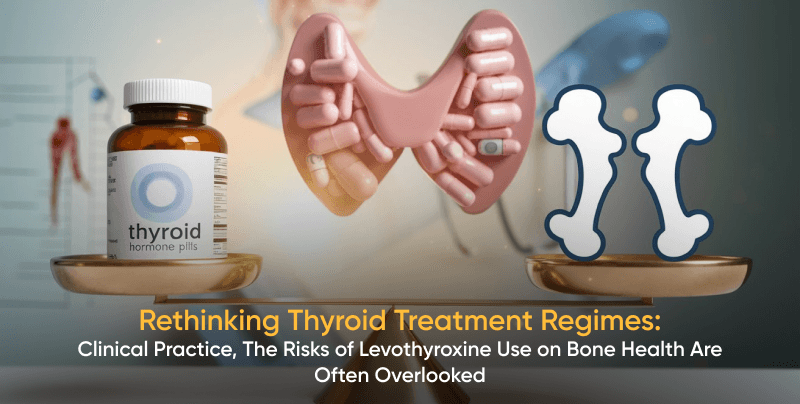A study was conducted by Dr. Shadpour Demebhri of Johns Hopkins University School of Medicine is worth worrying about for patients with underactive thyroid due to the treatment that is Levothyroxine (LT4), especially in this population which is regularly administered. Planned for presentation at the forthcoming Radiological Society of North America annual meeting to take place in Chicago, this study brings to light, a notable side effect; that of increased risk of bone loss.
Assessing the Effects
The degree to which it is able to function and produce effects is dependent on Levothyroxine functioning as a synthetic replacement of the thyroid hormone, thyroxine. However, among the older adults studied, which number nearly 450 (81 participants taking Levothyroxine), it has been established there is a risk of bone loss even with well-controlled thyroid levels. Participants with LT4 medication use documented significant reductions in total body bone mass and density over 6.3 years of sustained assessment.

What This Means Moving Forward
The implications of the findings are critical especially since Levothyroxine is the second most frequently used medicine in older patients. The findings reveal that patients particularly those with risks of osteoporosis or similar health conditions need close supervision.

Beyond the Drug’s Indication
Levothyroxine is commonly prescribed for hypothyroidism, but it is also used to suppress thyroid-stimulating hormone (TSH) levels in patients with goiter or thyroid cancer, particularly after thyroidectomy or radioactive iodine treatment. With its extensive use, it is essential to know all its effects for effective management and to enhance patient safety.
This paper points to large policy concerns over the need for all-inclusive treatment approaches that take into consideration all the risks as well as the benefits. There needs to be open communication between patient and healthcare providers regarding the treatment options for affected patients with chronic diseases such as hypothyroidism.
For purposes of further best advice and current approaches to thyroid disease, there is a need to engage health care specialists. Once again, knowing and taking an interest in one’s health is important in managing the challenges encountered with advanced medical treatment.



